‘Extra’ milk: why there are queues in Tatarstan to slaughter dairy cattle for beef
According to farmers, the livestock industry of the republic is expected to collapse if the fall in purchase prices for “white oil” is not stopped
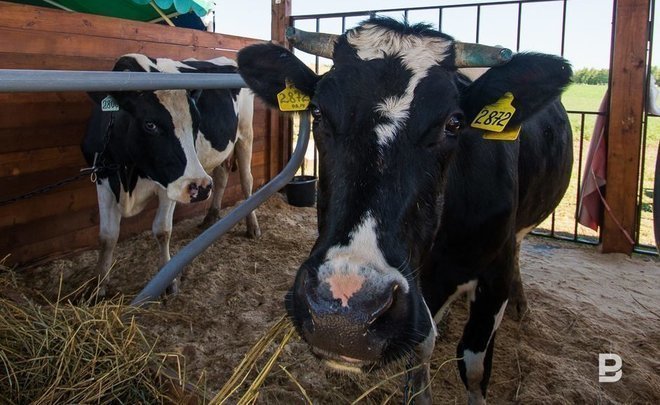
Purchasing prices for milk in Tatarstan, as it is now customary to say, have stooped to a whole new low — they have fallen below the level of five years ago, despite that, according to inflation calculators, the inflation rate has increased by more than 38% since the end of April 2018 to date. In such conditions, the livestock industry of the republic will collapse if the fall in purchasing prices for “white oil” is not stopped, agricultural producers warn. Read more about the reasons why milk is getting cheaper, catastrophic consequences of this process for the agro-industrial complex, and the measures that are being taken in the republic to correct the situation — in the material of Realnoe Vremya.
“Everything collapsed”
Farmer from Mendeleevsk Eldar Makhmudov is engaged in dairy farming. His family farm supplies its products to many agricultural markets. But this year the head of the farm has found himself on the verge of collapse.
“In winter, I sold milk at 36 rubles per liter with VAT, and if we count without VAT — at 33 rubles, now it is sold at 18 rubles without VAT," Mahmudov told Realnoe Vremya. “At the same time, the price of milk has not actually changed in the store — how so?"
According to him, over the past 2 years, milk purchase prices have been kept at an acceptable level in Tatarstan. And when the farms have just begun to develop, equipment was leased, everything collapsed — both prices and farmers' plans.
“They explain to us the drop in purchasing prices by the mass import of powdered milk from Belarus — they say, it costs dairy producers cheaper than ours, unprocessed. With my volumes, and I have a herd of only 100 heads, it is unrealistic to produce powdered milk. We make homemade cheese, but Mendeleevsk is a small city, and our cheese is not to everyone's taste, so there is little demand for it. Again, money is needed to promote it further.”
The hope is for the harvest of agricultural crops, the farmer argues. But this hope, as it turned out, is weak: last year, Makhmudov sowed mustard, gathered a good harvest — and this harvest remained in his warehouses:
“Last year, I sowed mustard for the first time, but I still haven't been able to sell it — they don't give a normal price, everyone wants to buy it cheap.”
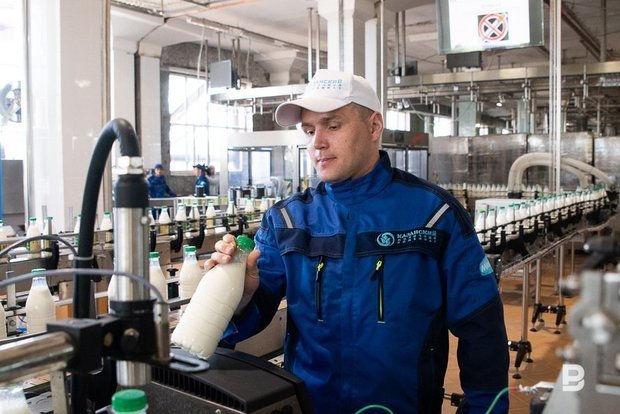
Like 5 years ago
In 2020, Tatarstan Minister of Agriculture and Food Marat Zyabbarov called milk “white oil” and spoke with pride about the republic's success in its “extraction”. Now, after 3 years, the situation in the industry has worsened, the producers of “white oil” say.
Based on the figures given by Makhmudov, in April 2023 alone, purchasing prices fell by an average of 10-11 rubles.
“As of April 3, the average purchasing price for milk in the context of Tatarstan agricultural organisations and farms amounted to 29,43 rubles (excluding VAT)," the head of the Ministry of Agriculture and Food of the Republic of Tatarstan reported in early May.
Marat Zyabbarov noted that at the beginning of April 2023, the purchasing price was 4,39 rubles lower than in the same period of 2022 (by 14,9%), but higher than in 2021 and 2020.
However, 5 years ago — in 2018 — the Ministry of Agriculture and Food of the Republic of Tatarstan officially stated a drop in the average purchase price to 19,05 rubles per kilogramme (excluding VAT), and this bar was higher than now.
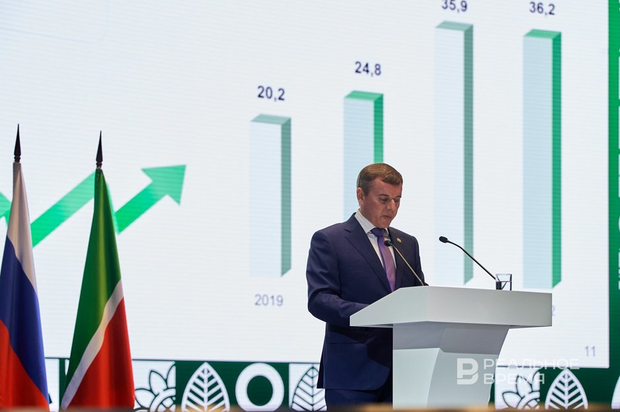
“A similar situation was in 2018," the Ministry of Agriculture and Food of the Republic of Tatarstan informed Realnoe Vremya in response to a request about the situation with milk purchases and measures taken at the government level to stabilise it. “This year, in the context of a decrease in milk purchase prices, agricultural producers received significant support in in the form of subsidies for 1 liter of milk sold in the amount of 1,3 billion rubles and for livestock breeding — 1,2 billion.”
The Ministry of Agriculture and Food also noted that now 523 million rubles have been additionally allocated from the republican budget to reimburse part of the costs for 1 kilogramme of milk sold in March and April of this year — at a rate of 2 rubles.
Subsidies, or a ban on palm oil?
But the chairman of the Association of Farmers and Peasant Farmsteads of Tatarstan, Kamiyar Baytemirov, is convinced that it is impossible to solve this problem with state support and subsidies.
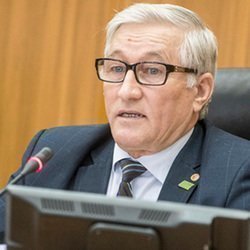
According to the interlocutor of Realnoe Vremya, the situation could be reversed by the introduction of state regulation of milk prices, but it should be introduced thoughtfully: “everything should be calculated so as to ensure the profitability of its production by peasant farms and farmers.”
“We need a set of measures: to stop the decline in purchase prices, be sure to introduce a ban on the import of palm oil to Russia, which is used by processing enterprises, since this directly affects milk pricing, introduce state regulation of prices, and ensure the real effective work of the antimonopoly service, which now finds no reason to intervene. We need relevant laws, government resolutions, presidential decrees," Kamiyar Baytemirov believes.
Stimulated, stimulated and then overstocked
In Tatarstan, as in Russia as a whole, active attempts have been made in recent years to stimulate the growth of milk production, and, apparently, they have been crowned with success. According to the Centre for the Study of the Dairy Market, at the end of the first quarter of 2023, milk production in Russia increased by 3,7% (from 7 million tonnes in the first quarter of 2022 to 7,3 million). In 2022, milk production increased by 2%, but milk consumption decreased by 12%.
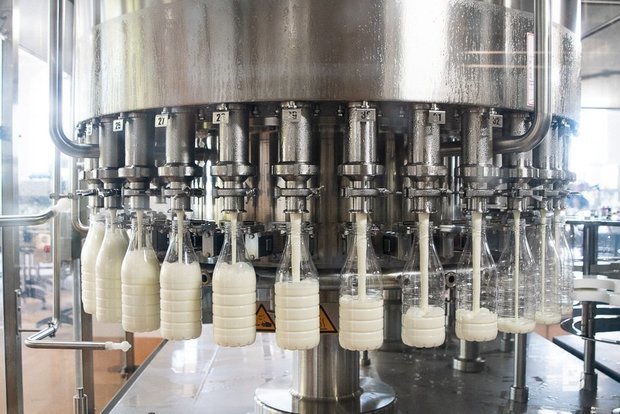
At the same time, almost all Russian regions are now experiencing overstocking of dairy warehouses, a drop in purchase prices for perishable dairy products, and an increase in prices for “long-lasting” powdered milk. According to official data, stocks of milk powder in Russia increased by 240%, cheese products — by 65%. Officials explain this by a drop in both domestic consumer demand and export volumes, linking the latter with the effect of anti-Russian sanctions.
“If we stop importing palm oil, then overstocking will end by itself," Kamiyar Baytemirov told Realnoe Vremya and recalled the recent proposal by industry representatives to issue milk coupons to the poor, military and schoolchildren. “And, given the 'strategic' importance of milk for human health, it is possible to solve the problem of overstocking warehouses with measures that will stimulate the demand for milk from the population.
“The one who kept a cow and slaughtered it will not have it again”
As for comprehensive measures aimed at adequate pricing in this area, back in 2018, at the instruction of Rustam Minnikhanov, Tatarstan tested the validity of the reduction of purchase prices for milk by processors.
Today, if the situation is not urgently “resolved”, animal husbandry is in for a catastrophe, the head of the Association of Farmers and Peasant Farmsteads of Tatarstan believes:
“It takes at least 3 years for a calf to become a cow that gives milk. And now there are queues of peasants lining up in our agricultural consumer cooperatives to slaughter these cows. And it will be impossible to restore this livestock.”
The destruction of the republican “milking herd” will not only negate the long-term efforts aimed at the development of the dairy industry, but also the more distant demographic consequences.
“The year before last, despite the drought, I did not slaughter a single cow for meat, because I was hoping for a subsidy promised from the state," recalls farmer Eldar Makhmudov. “But now I don't know how it will end. But you have to understand: if someone kept a cow and then slaughtered it, he will never get it again. And it's not just that it will be difficult to restore the herd due to financial difficulties! Keeping dairy cattle is very hard work — without breaks, vacations and rest. You are tied to a cow 365 days a year: you have to milk, feed, take care of. Many people already understood this and abandoned it, found themselves another occupation. Previously, almost every village had two herds, but now there is not even one! I moved to a village from Kazan, and then there were 120 cows in the neighbouring village, but now there are only 11 of them there!”
If there is no herd in the village, there will be no people there soon, the farmer concludes. Because they need a job but they don't have one:
“The farm provides work for at least 10 people. If my farm doesn't exist, they won't have a job! On the other hand, you won't find a machine operator in the village right now. Because in a city with such qualifications, he is promised a salary of 100 thousand rubles, but how can I pay such an amount?"